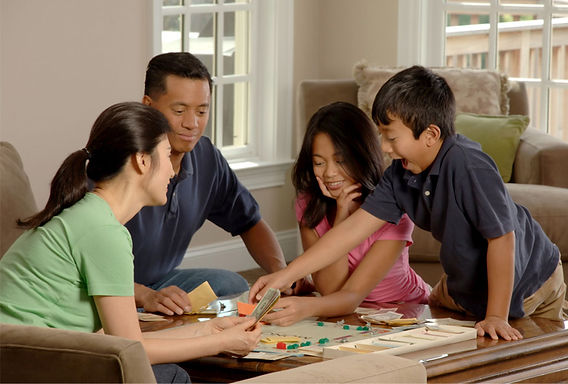Family Therapy Benefits can lead to profound changes in how family members communicate and interact with each other. This therapeutic approach is designed not just to mend broken relationships, but also to understand the dynamics at play within a family unit. By addressing issues as a collective rather than individually, families can foster deeper connections, uncover underlying problems, and work toward better emotional health.
Family Therapy Benefits

The landscape of modern family life can be complex and challenging. In an era marked by rapid change and increasing stressors, many families find themselves navigating difficult waters. The Family Therapy Benefits extend beyond mere conflict resolution; they encompass holistic growth, enhanced understanding, and improved emotional resilience among family members.
Understanding Family Dynamics
Family therapy encourages family members to explore their roles and interactions within the family system.
Every family operates within a unique set of dynamics that can influence behaviors and emotions. Understanding these dynamics is key to fostering healthier relationships.
During family therapy sessions, professional therapists guide families in identifying patterns of communication, attachment styles, and relational conflicts. Families gain insights into how their individual experiences impact the collective well-being of the unit.
For instance, a parent may realize that their approach to discipline creates friction between siblings. Acknowledging these patterns allows families to discuss alternatives and establish more harmonious interaction styles. This deep dive into family dynamics helps create a safe space where every voice is heard, creating an atmosphere of trust that is essential for healing.
Improving Communication Skills
Effective communication is the cornerstone of any healthy relationship. Family therapy provides a structured environment for practicing and improving these skills.
Therapists introduce techniques that promote open dialogue, active listening, and empathy among family members. For instance, employing “I” statements instead of accusatory language can significantly alter the tone of conversations, allowing for more constructive discussions.
Through role-playing exercises and guided discussions, families learn to express feelings without triggering defensiveness or shutting down. These skills not only enhance current relationships but also equip family members with tools to navigate future conflicts. The long-term benefit is that families develop a communication style that fosters connection instead of division.
Addressing Underlying Issues
There are often underlying issues that contribute to surface-level conflicts within families. Family Therapy Benefits include the opportunity to delve into these hidden challenges.
By working together under the guidance of a therapist, families can uncover the roots of their conflicts. This may involve exploring childhood experiences, cultural influences, and individual mental health challenges. For example, one sibling’s anger may stem from feelings of inadequacy compared to another, leading to resentment. By bringing these feelings to light in a safe setting, family members can start to understand and empathize with each other.
As families address these underlying issues, they can cultivate a new level of understanding, empathy, and support for one another. This ultimately fortifies the emotional bonds that hold families together.
Fostering Emotional Support
The journey through family therapy can foster a culture of emotional support within the family unit.
When families engage in therapy, they learn to validate each other’s feelings and experiences, creating an environment in which vulnerability is welcomed. This emotional support is crucial, especially during challenging times.
Families develop the ability to recognize when one member is struggling and respond with compassion rather than judgment. This shift can be transformative, allowing family members to feel seen, heard, and understood. Over time, such practices can strengthen relationships, providing a solid foundation for coping with life’s inevitable ups and downs.
Why Family Therapy Can Improve Relationships and Well-Being
Understanding Why Family Therapy Can Improve Relationships and Well-Being involves recognizing the interconnected nature of individual and family health. When one member struggles, it impacts the entire system. Family therapy serves as a mechanism to restore balance and harmony.
Strengthening Bonds Between Family Members
One of the most significant outcomes of family therapy is the strengthening of bonds between family members.
When families work through conflicts together, they often emerge with a renewed sense of connection and commitment to each other. Shared experiences in therapy can create lasting memories that reinforce their unity.
For instance, engaging in collaborative problem-solving can generate a sense of accomplishment, highlighting the family’s ability to overcome adversity. This shared success builds trust, allowing family members to rely on each other more fully in the future.
Furthermore, as families participate in therapy, they begin to appreciate each other’s strengths and contributions. This recognition fosters mutual respect, which is vital for maintaining healthy relationships. Valuing each other’s individuality while navigating together enhances overall familial well-being.
Encouraging Personal Growth
Family therapy isn’t solely about resolving conflicts; it can also encourage personal growth among family members.
As individuals explore their roles and responsibilities within the family context, they can identify areas in which they wish to grow. This journey of self-discovery can lead to increased self-awareness, confidence, and resilience.
For example, a teen facing anxiety might learn coping strategies through therapy, not only benefiting themselves but also positively impacting family dynamics. By openly discussing their challenges with family support, they break down barriers, inviting others to share their struggles as well.
This focus on individual growth reinforces the idea that when one member improves their mental health, the overall family unit flourishes. Each person’s journey becomes intertwined with the collective experience, encouraging a cycle of growth and support.
Building Conflict Resolution Strategies
Conflict is an inevitable part of any relationship, but how families handle conflict can determine the strength of their bonds.
Family Therapy Benefits include teaching effective conflict resolution strategies. These strategies empower families to tackle disagreements constructively rather than through escalation.
Therapists provide tools that help families de-escalate tensions, such as taking breaks during heated moments or focusing on solutions rather than blame. Learning to navigate conflict positively can transform the way family members interact with one another.
Additionally, these strategies can have ripple effects beyond the family unit. As family members learn to resolve disputes respectfully, they carry those skills into their interactions with friends, colleagues, and others, further enhancing their overall social development.
Promoting Mental Health Awareness
In today’s fast-paced world, mental health awareness is more important than ever. Family therapy plays a critical role in promoting this awareness within family units.
As families engage in therapy, they become more attuned to the emotional and psychological needs of each member. This heightened awareness can lead to proactive measures, such as seeking additional support or making lifestyle changes that prioritize mental well-being.
This focus on mental health can also reduce stigma associated with discussing emotional struggles. Families learn to communicate openly about topics like anxiety, depression, and stress without fear of judgment. This environment cultivates a sense of safety, ensuring that all members feel comfortable seeking help when needed.
Conclusion
In conclusion, the practice of family therapy offers numerous Family Therapy Benefits that extend far beyond resolving conflicts. By fostering understanding, enhancing communication, and building emotional support systems, families can significantly improve their relationships and overall well-being.
Moreover, as family members work together in therapy, they not only confront their challenges but also embark on a journey of personal growth and development. This dual focus ensures that as individuals flourish, the family unit strengthens, ultimately creating a resilient and nurturing environment.
Understanding Why Family Therapy Can Improve Relationships and Well-Being underscores the importance of viewing family dynamics as a collective experience. Families equipped with the tools derived from therapy can navigate the complexities of life with confidence, unity, and love. Embracing family therapy as a proactive measure can pave the way for richer, more meaningful relationships, enabling families to thrive in a world filled with change and uncertainty.
Family Counseling: Find Support and Solutions for Your Family’s Challenges Today!

